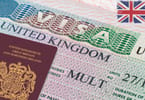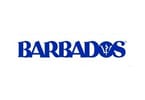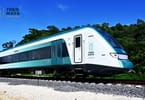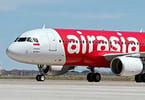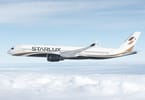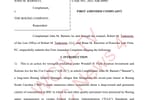Air New Zealand shares surged nearly 4 percent yesterday as it announced it was extending its share buyback scheme for another year.
The company – which is slated to be sold down by the Government this year – announced at its annual meeting it plans to purchase up to 3 per cent or up to $45 million of its shares, whichever is the lower, over the next 12 months. Shares climbed by 5.5c to close at $1.51.
The airline started a share buy- back program a year ago, saying then it did not believe that the share price fairly reflected the underlying value of the company’s shares.
Rob Mercer, head of private wealth research at Forsyth Barr, said he did not think the share buyback announcement would have been solely responsible for pushing up the stock’s price given its relatively small scale.
It was more likely investors who had been on the sidelines ahead of the airline’s sell-down had bought based on the good fundamentals of the company, especially in light of its recent profit announcement, which exceeded expectations.
The Government is likely to sell down its 73 percent stake in the airline to 51 per cent, most probably through placement to institutions before Christmas.
Outgoing Air NZ chairman John Palmer said he was unable to comment on the sell-down as it was the Government’s decision on when and how it happened.
Shareholders also heard the airline is cutting back on some loss-making regional routes and has announced redundancies among its engineers as it cuts costs under new chief executive Christopher Luxon.
Luxon told shareholders in Auckland more modern planes needed less maintenance and the airline was working through the redundancy process with some engineers.
The Airports Association yesterday criticised the airline for pulling out of Masterton and scaling back flights to Wanganui and Westport.
Speaking after the meeting, Luxon said the economics of some regional routes didn’t work but where there was demand the airline was starting new services or putting on bigger planes.
Its 19-seat Beechcraft planes were the most expensive across the airline’s entire fleet.
“Although great customer service is paramount in our industry, in the end it cannot trump high costs. A low cost base preserves profits. The more profitable an airline, the more formidable it is as a competitor and the more it can invest in driving future growth.”
Asked during the meeting to explain the difference between the airline’s “disastrous” shareholding in Ansett Australia around 2001 and its current stake in Virgin Australia, Luxon said the position of Air New Zealand was light years away.
Ansett Australia collapsed in 2001, bringing Air New Zealand to its knees and Virgin Australia, in which it has a 23 per cent stake, this year announced a loss of $110 million.
Luxon said the Virgin shareholding – worth about $330 million – was much different even though recent losses were disappointing.
Air New Zealand along with other major shareholders Singapore Airlines and Etihad had made available a A$90 million credit facility for Virgin, Air New Zealand has the right to increase its Virgin stake to 26 per cent and Luxon said the “equity glue” gave Air New Zealand access to a domestic market of 23 million and its alliance across the Tasman had made that route profitable.
“It has three very well resourced shareholders who all see the potential long term of that business … and will continue to support that business as needed,” Luxon said.
“The position of Air New Zealand then [in 2001] and now is light years away – the cash balance that we have gives us huge muscle and firepower.”
Unlike Ansett, Virgin started life as a low-cost carrier with a lower cost base and a much younger fleet.
Air New Zealand more than doubled its net profit for the year to June 30 to $182 million. Luxon said the current year had got off to a strong start across all routes.
Palmer will be replaced by former Foodstuffs managing director Tony Carter who joined the board in 2010.
WHAT TO TAKE AWAY FROM THIS ARTICLE:
- Air New Zealand along with other major shareholders Singapore Airlines and Etihad had made available a A$90 million credit facility for Virgin, Air New Zealand has the right to increase its Virgin stake to 26 per cent and Luxon said the “equity glue”.
- It was more likely investors who had been on the sidelines ahead of the airline’s sell-down had bought based on the good fundamentals of the company, especially in light of its recent profit announcement, which exceeded expectations.
- Ansett Australia collapsed in 2001, bringing Air New Zealand to its knees and Virgin Australia, in which it has a 23 per cent stake, this year announced a loss of $110 million.







